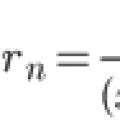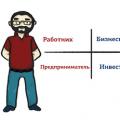Wolf and Lamb (The strong are always powerless...). See what “You are to blame for the fact that I want to eat” in other dictionaries Fable You are to blame for the fact that I want to eat
The powerful are always to blame for the powerless:
We hear countless examples of this in History,
But we don’t write History;
But this is how they talk about it in Fables.
On a hot day, a lamb went to a stream to drink
And something must happen,
That a hungry Wolf was prowling around those places.
He sees a lamb and strives for the kill;
But, to give the matter at least a legal look and feel,
Shouts: “How dare you, insolent, with an unclean snout
Here's a clean drink
With sand and silt?
For such insolence
I'll rip your head off."
 "When the brightest Wolf allows,
"When the brightest Wolf allows,
I dare say that down the stream
From the Lordship of his steps I drink a hundred;
And he deigns to be angry in vain:
There’s no way I can make him drink worse.”
"That's why I'm lying!
Waste! Such insolence has never been heard of in the world!
Yes, I remember that you were still last summer
Here he was somehow rude to me:
I haven’t forgotten that, buddy!”
“For mercy, I’m not even a year old yet,” -
 The lamb speaks. "So it was your brother."
The lamb speaks. "So it was your brother."
"I have no brothers." - “So this is godfather or matchmaker
Oh, in a word, someone from your own family.
You yourself, your dogs and your shepherds,
You all want me harm
And if you can, then you always harm me,
But I will clear out their sins with you."
"Oh, what is my fault?" - "Be quiet! I'm tired of listening,
It’s time for me to sort through your faults, puppy!
It’s your fault that I want to eat,”
He said and dragged the Lamb into the dark forest.
The powerful are always to blame for the powerless:
We hear countless examples of this in history.
But we don't write history,
But what they say in fables...
On a hot day, a lamb went to a stream to drink:
And something must happen,
That a hungry Wolf was prowling around those places.
He sees a lamb and strives for the prey;
But, to give the matter at least a legal look and feel,
Shouts: “How dare you, insolent, with an unclean snout
Here is the pure muddying of my drink
With sand and silt?
For such insolence
I'll rip your head off." —
“When the brightest Wolf allows,
I dare say that down the stream
From the Lordship of his steps I drink a hundred;
And he deigns to be angry in vain:
There’s no way I can make him drink worse.” —
“That's why I'm lying!
Waste! Never heard of such insolence in the world!
Yes, I remember that you were still last summer
Somehow he was rude to me here;
I haven’t forgotten this, buddy!” —
“For mercy, I’m not even a year old yet.” —
The lamb speaks. - “So it was your brother.” —
"I have no brothers." - “So this is godfather or matchmaker.
And, in a word, someone from your own family.
You yourself, your dogs and your shepherds,
You all want me harm
And if you can, then you always harm me;
But I will clear up their sins with you.” —
“Oh, what is my fault?” - “Be quiet! I'm tired of listening.
It’s time for me to sort through your faults, puppy!
It’s your fault that I want to eat.”
He said and dragged the Lamb into the dark forest.
Fable The Wolf and the Lamb listen online:
Krylov's fable The Wolf and the Lamb in mp3 format - listen or download for free.
The powerful are always to blame for the powerless:We hear countless examples of this in history.
But we don't write history,
But what they say in fables...
On a hot day, a lamb went to a stream to drink:
And something must happen,
That a hungry Wolf was prowling around those places.
He sees a lamb and strives for the prey;
But, to give the matter at least a legal look and feel,
Shouts: “How dare you, insolent, with an unclean snout
Here is the pure muddying of my drink
With sand and silt?
For such insolence
I'll rip your head off." -
There’s no way I can make him drink worse."
"That's why I'm lying!
Waste! Never heard of such insolence in the world!
Yes, I remember that you were still last summer
Somehow he was rude to me here;
I haven’t forgotten this, buddy!” -
“For mercy, I’m not even a year old yet.” -
The lamb speaks. - “So it was your brother.” -
"I have no brothers." - “So this is godfather or matchmaker.
And, in a word, someone from your own family.
You yourself, your dogs and your shepherds,
You all want me harm
And if you can, then you always harm me;
But I will clear away their sins with you." -
"Oh, what is my fault?" - “Be quiet! I’m tired of listening.
It’s time for me to sort through your faults, puppy!
It’s your fault that I want to eat.”
He said and dragged the Lamb into the dark forest.
Moral of the fable "The Wolf and the Lamb"
The beginning of the work begins with a moral:
"The powerful are always to blame for the powerless"
Krylov, with his characteristic ease, loudly declares that when a strong and weak side collides, the latter is to blame.
Indeed, what can the little Lamb prove, no matter how polite and courteous he may seem? How to protect yourself in front of a hungry Wolf?
Analysis of the fable "The Wolf and the Lamb"
The work "The Wolf and the Lamb" is one of the few fables in which the main characters are equally important.
The wolf personifies people who have strength, an understanding of their own impunity, using their position, neglecting the rules of decency.
The Wolf, showing rudeness and anger towards the Lamb, calls him “an impudent, unclean snout.” It is difficult to stop the force, because people like the Wolf do not need to justify themselves to anyone.
He shows his impudence and shamelessness, his entire essence, with just one expression: “It’s your fault that I want to eat.”
The defenseless Lamb embodies the lack of rights of the common people in general and people in particular.
Considering his hopeless situation, the Lamb tries to soften the Wolf’s anger with soft speech and flexible conversation. Although from the very beginning he is well aware of his weakness and powerlessness.
Addressing the Wolf as if he were a noble person with the words:
"When the brightest Wolf allows,
I dare say that down the stream
From the Lordship of his steps I drink a hundred;
And he deigns to be angry in vain:
There’s no way I can make him drink worse,”
in conversation, in not a single answer, he does not violate respect.
Ivan Krylov in the fable “The Wolf and the Lamb” continues to ridicule human vices that need to be eradicated.
We can only admire the author’s ability to briefly and sharply suggest to the mightiest of this world how humiliating and inhuman their behavior is.
Fable "The Wolf and the Lamb" - catchphrases
- It's your fault that I want to eat
- The powerful are always to blame for the powerless
Jarg. school Iron. About a student in the school principal's office. /i> From the fable “The Wolf and the Lamb” by I. A. Krylov. Maksimov, 384 ... Big dictionary Russian sayings
POWERLESS, powerless, powerless; powerless, powerless, powerless. 1. Without strength, extremely weak. Powerless old man. || Someone who is unable to do anything cannot overcome anything. We are powerless in the fight against earthquakes... Dictionary Ushakova
Aya, oh; flax, flax, flax. 1. Physically weak. The patient is still weak and powerless. □ in sign. noun * The powerful are always to blame for the powerless (Krylov). 2. usually short. in front of whom? Feeling powerless (2 digits). Unfortunately, I am powerless to fulfill your request... ... encyclopedic Dictionary
powerless- oh, oh; flax, flax, flax. see also powerless 1) a) Physically weak. The patient is still weak and powerless. b) lex., in sign. noun * For the strong, the powerless is always to blame (Krylov) 2) a) usually briefly ... Dictionary of many expressions
I. INTRODUCTION II. RUSSIAN ORAL POETRY A. Periodization of the history of oral poetry B. Development of ancient oral poetry 1. The most ancient origins of oral poetry. Oral poetic creativity of ancient Rus' from the 10th to the mid-16th century. 2.Oral poetry from the middle of the 16th century to the end... ... Literary encyclopedia
Aphorisms can be divided into two categories: some catch our eye, are remembered and are sometimes used when we want to show off wisdom, while others become an integral part of our speech and go into the category catch phrases. About authorship... ...
Krylov I.A. Krylov Ivan Andreevich (1769 1844) Russian fabulist. Aphorisms, quotes Krylov I.A. biography It’s your fault that I want to eat. The Wolf and the Lamb (Wolf) What thieves get away with, they beat the thieves for. Little Crow Almost everyone has... ... Consolidated encyclopedia of aphorisms
- (der Wille zur Macht) the central concept of Nietzsche’s philosophy of life, which had and still has a significant influence on the philosophical thought of the 20th century. Subjected to unprecedented vulgarization, falsification and ideologization. Nietzsche fundamentally... The latest philosophical dictionary
Wed. He who dares the most is rightest! This is how it has always been done and this is how it will always be! Only a blind man can't see it! Dostoevsky. Crime and Punishment. 5, 4. Wed. The powerful always have the powerless to blame. Krylov. Wolf and Lamb. Wed. Judicial... ... Michelson's Large Explanatory and Phraseological Dictionary
1. U1, uncl., cf. the name of the letter y, the name of the corresponding sound, etc.; avg. a1. It's long. Impact u. 2. U2 [pron. drawn out], int. 1. Serves to express reproach, reproach. “Ugh! darling! the nanny grumbles quietly.” Goncharov. || Serves for… … Ushakov's Explanatory Dictionary
Books
- Fables (CDmp3), Krylov Ivan Andreevich. Ivan Andreevich Krylov (1769-1844) - an outstanding Russian publicist, poet, fabulist, publisher of satirical and educational magazines. The author of more than 200 fables, in which he ridiculed social and...
- Fables, Ivan Krylov. Ivan Andreevich Krylov (1769–1844) - an outstanding Russian publicist, poet, fabulist, publisher of satirical and educational magazines. The author of more than 200 fables, in which he ridiculed social and... audiobook
Wolf and Lamb drawing
Fable The Wolf and the Lamb read the text
The powerful are always to blame for the powerless:
We hear countless examples of this in history.
But we don't write history,
But what they say in fables...
On a hot day, a lamb went to a stream to drink:
And something must happen,
That a hungry Wolf was prowling around those places.
He sees a lamb and strives for the prey;
But, to give the matter at least a legal look and feel,
Shouts: “How dare you, insolent, with an unclean snout
Here is the pure muddying of my drink
With sand and silt?
For such insolence
I'll rip your head off." -
"When the brightest Wolf allows,
I dare say that down the stream
From the Lordship of his steps I drink a hundred;
And he deigns to be angry in vain:
There’s no way I can make him drink worse."
"That's why I'm lying!
Waste! Never heard of such insolence in the world!
Yes, I remember that you were still last summer
Somehow he was rude to me here;
I haven’t forgotten this, buddy!” -
“For mercy, I’m not even a year old yet.” -
The lamb speaks. - “So it was your brother.” -
"I have no brothers." - “So this is godfather or matchmaker.
And, in a word, someone from your own family.
You yourself, your dogs and your shepherds,
You all want me harm
And if you can, then you always harm me;
But I will clear away their sins with you." -
"Oh, what is my fault?" - “Be quiet! I’m tired of listening.
It’s time for me to sort through your faults, puppy!
It’s your fault that I want to eat.”
He said and dragged the Lamb into the dark forest.
Moral of Ivan Krylov's fable - The Wolf and the Lamb
Each fable contains a short moralizing conclusion - a moral. And this fable is no exception. I.A. Krylov conveys the main idea to the readers, one of his main themes of creativity - the lack of rights of ordinary people, at the very beginning of the fable “The strong are always to blame for the powerless.” Unfortunately, this formulation is relevant at all times.
Moral in your own words, the main idea and meaning of Krylov’s fable
It’s your fault that I want to eat and I have leisure to sort out your faults, puppy! This shows a situation where, if you have strength and authority, you can appoint the perpetrators yourself.
Analysis of the fable The Wolf and the Lamb, the main characters of the fable
Wolf
A rich, noble and powerful person is personified to readers by one of the main characters, the Wolf, who is not ashamed to abuse his power, or, in other words, the embodiment of “power” in the modern world.
The writer shows us in the Wolf an example of evil force and its principle of operation.
Lamb
In the Lamb, on the contrary, we see a poor and defenseless person or “people”.
At the beginning of the dialogue, the Lamb is not afraid of the Wolf, since he does not bother anyone, and even after the ridiculous accusations that the Wolf makes to the Lamb, he is not afraid to deny them, but also tries to maintain the tone of his respect and respect. With the help of the “law,” the Wolf tries to accuse the Lamb, although at the same time he knows very well that he is wrong, readers can see this in the lines “... But, at least give the case a legal look and feel...”. Analyzing the Lamb's answers, one gets the impression that he is driving the enemy into a dead end; self-respect and courage are felt in his answers. But to the chagrin of the Lamb, this does not save him. Every answer he makes angers the predator more and more. Soon the Wolf cannot find any arguments for accusations, “...It’s your fault that I want to eat...” - the last unfair and absurd remark on his part towards the Lamb, after which the unexpected and expected at the same time happens: “He said to the dark forest The lamb was dragged." From the first lines it was already clear that this would happen or should have happened, but watching the courage of the Lamb, there was hope that he would prove his innocence and remain safe.
Analysis
Likewise, in the modern human world, one can very often encounter a similar situation, and this does not apply only to the authorities and the people. A similar incident can happen anywhere, at work, at school or even in kindergarten.
The benefits of fables
"Genuine book folk wisdom“- said N.V. Gogol about I. Krylov’s fables. Such fables will be useful not only for children, but also for adults. With the help of such allegories invented by the authors, you learn to be honest, fair and courageous. Therefore, re-reading such works and drawing conclusions from past mistakes is very useful so as not to repeat them in the future.
Winged expressions that came from the fable The Wolf and the Lamb
- Give the case at least a legal look and feel
- The powerful are always to blame for the powerless
- It's your fault that I want to eat
Listen to Ivan Krylov's fable The Wolf and the Lamb
 Taylor series expansion Approximate solution of the Cauchy problem for the ordinary
Taylor series expansion Approximate solution of the Cauchy problem for the ordinary What is NOT taught at school What is not taught at school ask
What is NOT taught at school What is not taught at school ask Money Thinking Formula (A
Money Thinking Formula (A